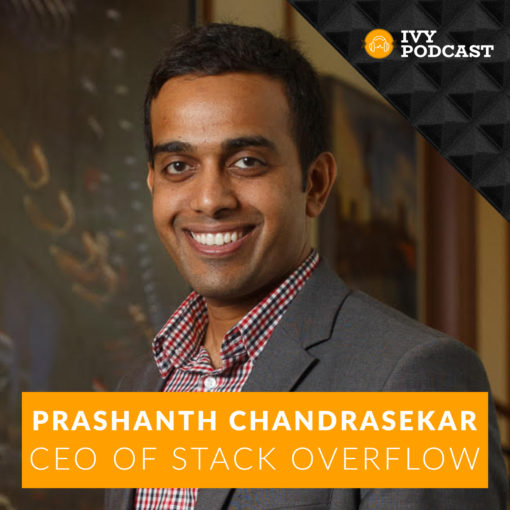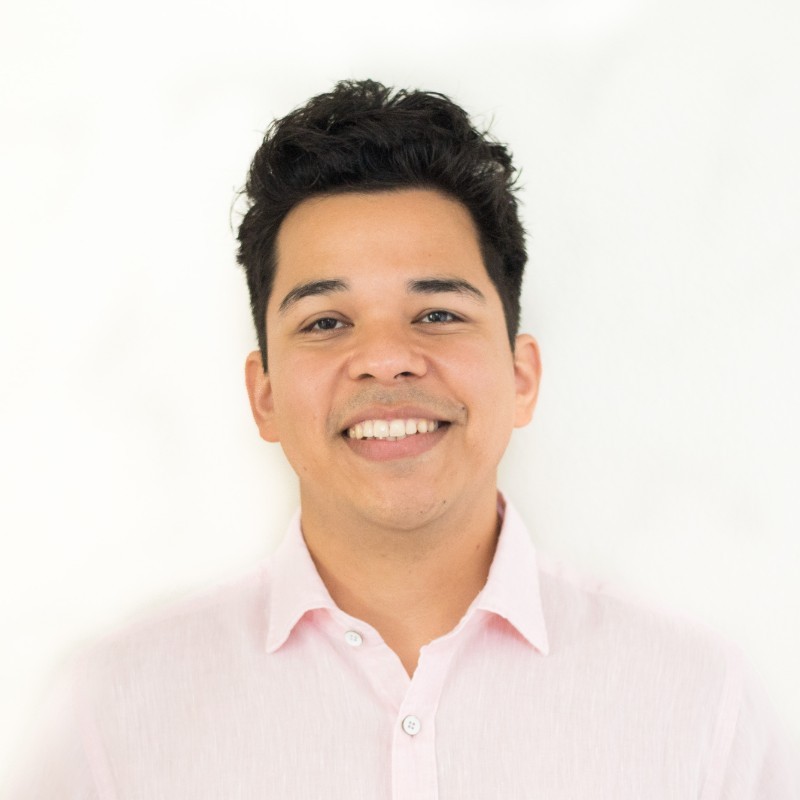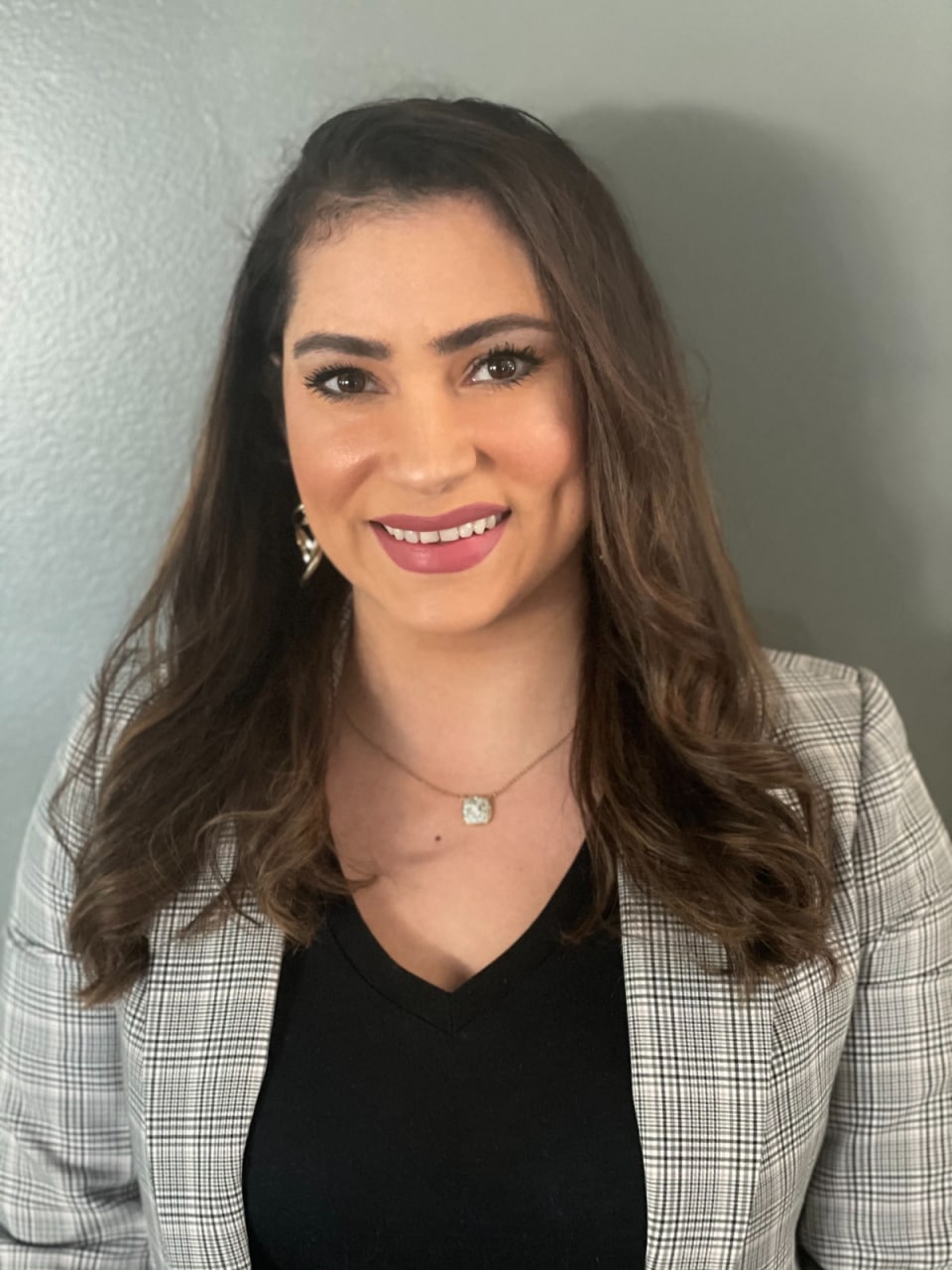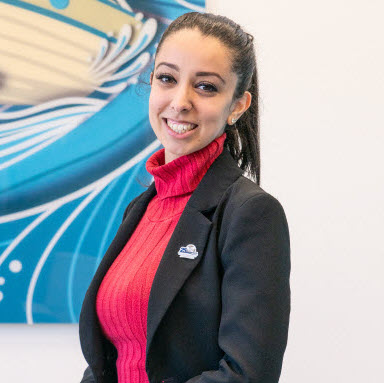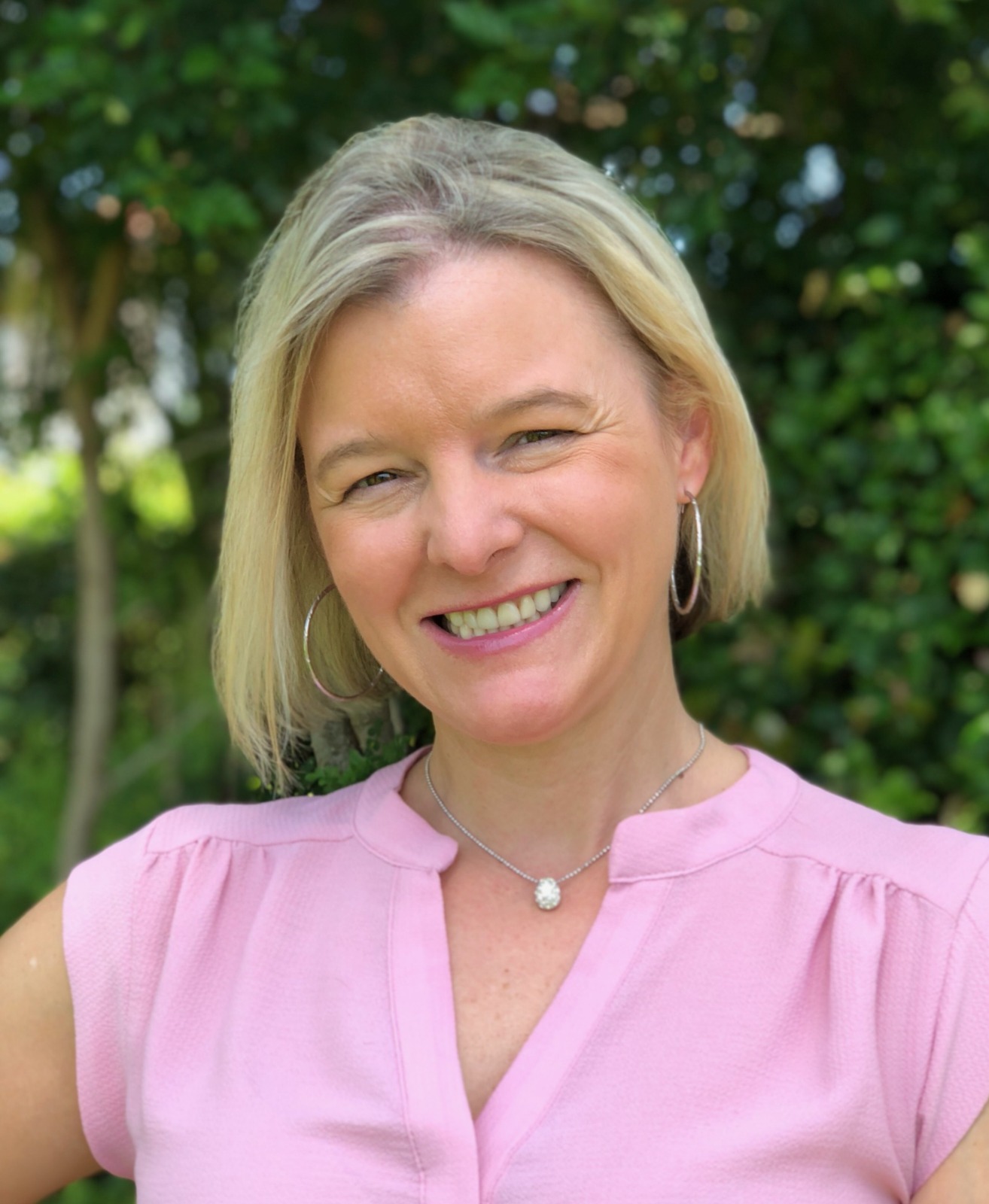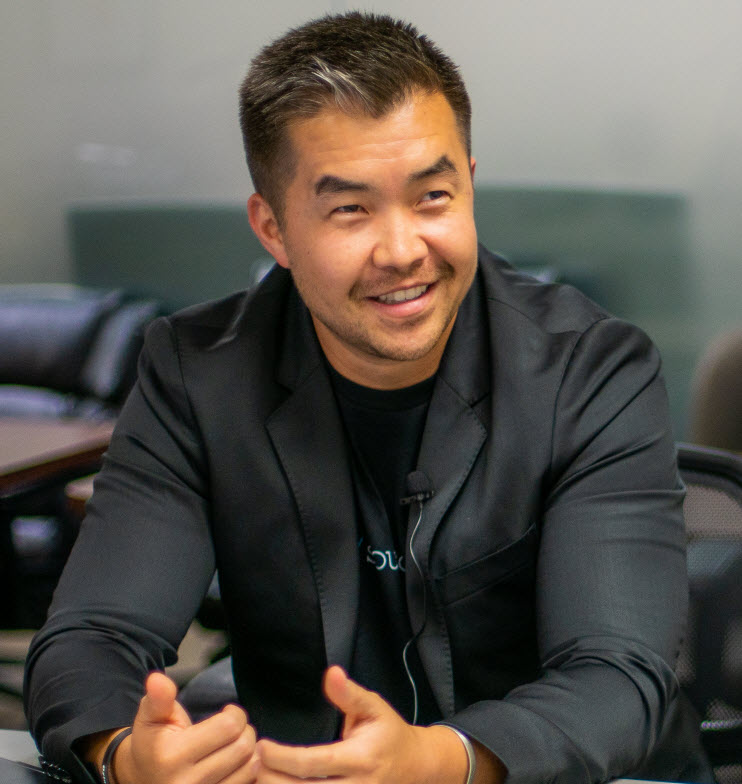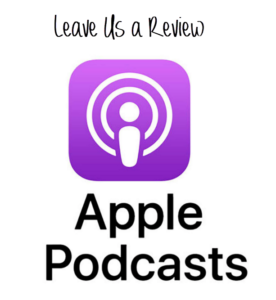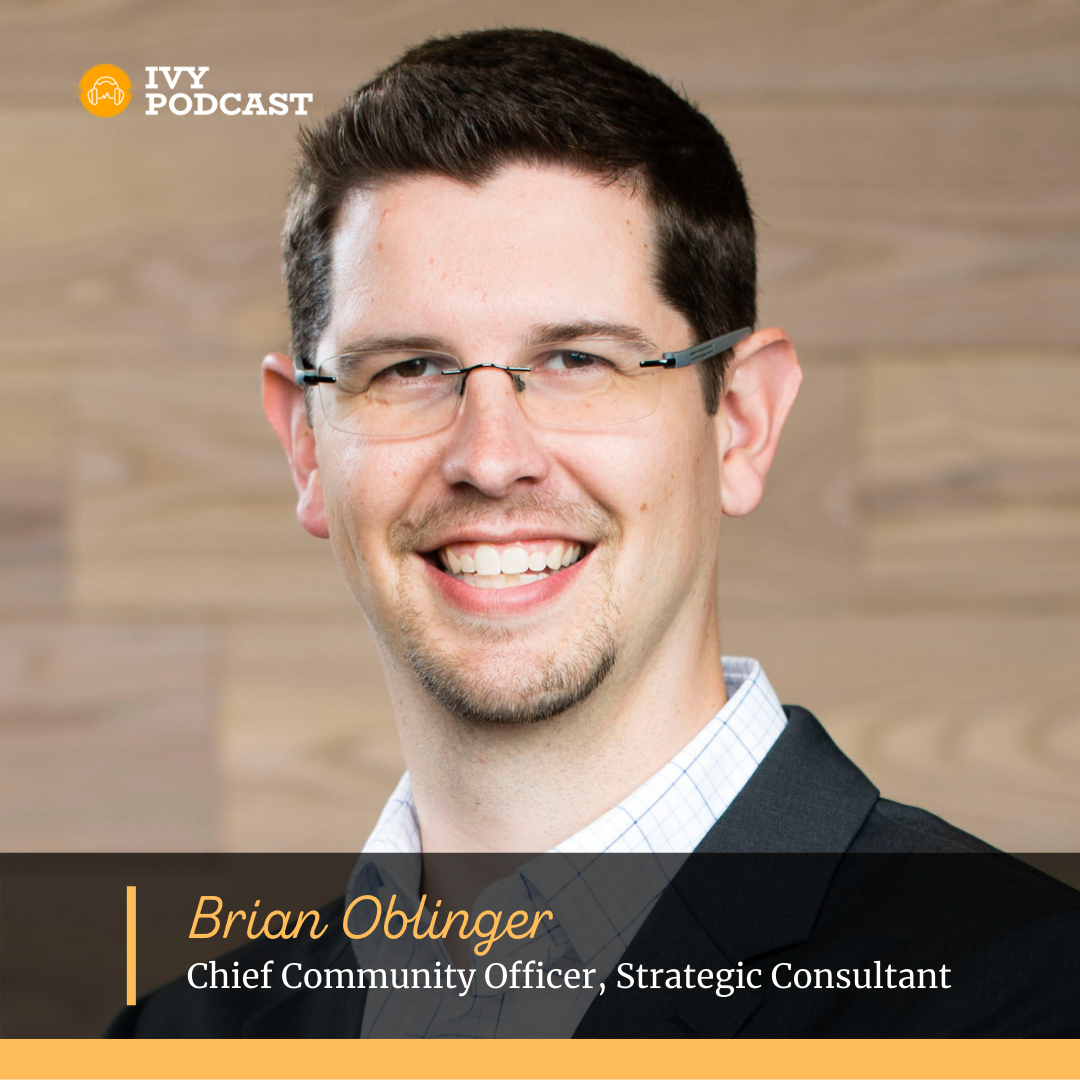
Brian Oblinger is a strategic consultant and keynote speaker with over 20 years of experience helping enterprise brands leverage the power of community and customer experience to increase satisfaction, lower costs, and generate more revenue. He has helped companies like Acer, Alteryx, Autodesk, Comcast, eBay, The Home Depot, HP, and PlayStation connect with their customers to build an engine for engagement, satisfaction, and retention. He is also the co-host of In Before The Lock podcast where he talks about community, customer experience, and leadership at scale.
Episode transcription:
[00:00:21] Cesar Romero: [00:00:21] Hey, everyone. Welcome to another episode of the Ivy Podcast. Today, we're going to be talking about community asset growth drivers for your business. So if you are listening to this episode and you're wondering what is community, what's the impact the community can have in your business, or maybe you are a community professional that you're struggling with challenges are how to present the impact that community is having on your business, then you definitely want it to name into this episode because today my guest is Brian Oblinger and Brian for the past 20 plus years, he's been helping brands leverage the power of community and customer experience to achieve your goals. And he's also a consultant speaker and the host of the podcast in before the lock brand. Thank you so much for being on the show today. [00:01:28] Brian Oblinger: [00:01:28] Yeah. Thanks for having me. [00:01:30] Cesar Romero: [00:01:30] Absolutely. So. The main question in people's minds is how do you make sure that the impact of the community, but before diving into that, I want to set the context and help the audience get to know more about brands. So why don't you tell us a little bit more about your background? How do you get started into the work that you're doing and why are you so passionate about community and customer experience? [00:01:59] Brian Oblinger: [00:01:59] Yeah. In a lot of ways communities are the only thing I've ever done right. So I don't have any other applicable skills. So I'm kind of stuck in this industry, but I got started really young. I was a kid, I liked playing video games, the Internet became a thing. My parents bought a computer, we hooked it up to the phone line, and I think it was on CompuServe at the time. And I started, I don't think Google was even around. I think this was like Netscape and stuff like that. So I just started searching for gaming stuff and I stumbled into gaming communities at the time. This is like in the late nineties, kind of mid to late nineties. And I know, right? Half your listeners probably weren't alive then, but that's okay. So, no judgment. So, I started getting into these communities and really, I got started by just being a member. I just really loved going to these communities and connecting with people and having conversations and sharing whatever I could share there. And I just, I found that so addicting, I spent all of my time at that computer and I'm sure my parents were like, what is this? Oh no, what have we done? But look at me now, ma. So it all worked out, but I've always been into the community. And then there were opportunities to volunteer. I created a couple of my own communities, varying degrees of success and just grew really organically with this whole thing. And I've done pretty much every job one could do from a community management and administration and all that perspective and then teaching other people how to do community. So it's truly my life's work. I don't know anything else. And I just really want to help people succeed with building these great communities. [00:04:03] Cesar Romero: [00:04:03] I love a brand, I live with that. It's an extension of your passion and your personality. Right, because I don't know people, that's one of the biggest challenges. Right? How can they combine what they're passionate about in their career and you are someone that has done that very successfully. So that's awesome. So throughout your career in helping businesses build community what have been the biggest challenges that you have noticed or help businesses solve around community and customer experience. [00:04:48] Brian Oblinger: [00:04:48] Yeah. I mean, clearly the business aspect of this and the measurement aspect. So, to go back to the beginning here, I think gaming companies in particular understood the value of building community around their games and around their consoles and those kinds of things, and so I think they understood that pretty early on, but from an enterprise or corporate business perspective this is all new. And what's funny is we've been doing this for 20 years or whatever now. And people are still just discovering it now. Right. So it's still relatively new. And so one of the big challenges is education, right? Just what is this thing? Why do I care? Why would I invest money? And what kind of return am I going to get? These are just the most basic of topics that I talk about every day with businesses today. Now people are getting a little bit more wise to all of this and more accepting and that's great, but we're still very much in the early innings of a lot of that. And so I think education has been a big one. And then clearly, how do you translate what you're doing in the community to actual business value, which I know we're going to talk about and tell that story. So like CMX, just put out a report, right? A couple of days ago, as we record about trends in the industry, they do this every year and the trends are great and there's lots of positive news in there, but the one thing about the report that's kind of on the downside is a lot of community professionals said in their survey that they still struggle to measure the value of community and to tell that story to like an executive audience at businesses. So we still have a long way to go there, and I have a bunch of experience doing that and am happy to share whatever I can. [00:06:49] Cesar Romero: [00:06:49] Absolutely. And let's dive right into it then. Why do you think that's the number one challenge. And to set the context here, I was having a conversation with an executive and I was trying to explain to him the value of community. And he just gave me this nod of like, yeah, I think I know what you're saying, but he didn't really understand right. Then that could be my fault for not explaining it well. But what do you think there's such a disconnect between the executive team and a community team or a community manager. [00:07:36] Brian Oblinger: [00:07:36] Yeah, I think there's a couple of facets. One is on the community manager side. Right? So people who have been building and operating these communities have been focused on doing just that. They spend all of their time, every day thinking about how to engage members and how to build programs and what their content looks like? And they're deeply invested in the day-to-day operational aspects of the community. And so therefore they just haven't had the time to invest right in understanding what the business aspects are and how, and they don't get that. They haven't had that exposure like classically. We all know it's kind of a trope at this point, but classically community professionals have been sort of under appreciated and just off in their corner doing their thing, generating value, whether people know it or not. And so, they just haven't had that opportunity to get into those types of more strategic discussions. And know what executives care about. So that's on the community side, on the executive side. Again, this is just all new, right? They understand marketing, they understand accounting, they understand products, these are all things that have been around for hundreds of years and are pretty well-worn paths. And there's a large base of knowledge around this and accepted best practices. And so those are just known quantities, right? Whereas community is this sort of newer for a lot of companies and a lot of executives it's brand new, right. They've never heard of it before or when they do. There's a big learning curve there. Now I am starting to see when I talk to clients and I talk to a bunch of different people in their organizations. I am starting to see that change, just by virtue of, because we've had enough time now you'll talk to people and they'll say, Oh, Yeah, two companies ago, we had a community and it was great. So some of that familiarity and just general awareness is being built up, which is good, but you're right. That a lot of times you have these conversations and they just don't know. And it's not because they're dumb or they don't get it or whatever. It's just, they haven't had the time to understand it yet. And so that's really the challenge for us as community professionals is to help them understand that and it is on us. I think if you're just waiting for someone to have an epiphany and understand everything clearly you're going to be waiting a long time. And so we have to think very deeply about how we connect with these people and how we help educate them. And then how do we show them what that value can actually be through execution? [00:10:09] Cesar Romero: [00:10:09] Yeah. No, absolutely. And so, Brian, let's say you had to go into an executive meeting, right. Like, and prove the ROI of community in the business. Like how would you approach that? What are some of the things that you would consider in terms of achievement, that goal of creating that awareness in the executive team? [00:10:40] Brian Oblinger: [00:10:40] Yeah. Well, the first thing is to ask questions, right? So instead of going in and trying to have this big presentation and here's what the value is and here's what you can do and all of that, the first thing you need to do is understand what their goals are and what they care about. And oftentimes when you talk to people at the executive level, their goals are going to sound something like, I'm trying to reduce costs or I'm trying to generate more revenue or I'm trying to create more leads, right? If I'm on the marketing side or if I'm in product, I want to build a better product, a more quality product with less defects support, so go in and understand like what's their slice of the business, what do they really care about? And what are those high level, the highest of level business goals that they have? And then I think once you understand what those are and what their challenges are, and who's involved and all that good stuff, then you can start to craft a narrative and say, Okay, for example, let's do the support one because that's everybody's favorite. Right? So if you go talk to the VP of support or the chief customer officer, or whoever owns support at a company oftentimes they have several key problems. One is obviously cost, right? They're trying to bring their costs down to scaling their team and how are we going to address the needs of our customers with what we have available to us on the resource side, and then the third one is typically, how they interface with the product, right? And what the interplay is between product and support and how they work together. Those are kind of commonly three challenges you might find. And so what I would say to that executive, once I understand that a little bit more is I would say, well, look with a self-service environment in this community, right. We can create content and put it out there and people can self-serve and it can be a one to many, or many to many model where they're supporting each other, they're consuming this content. And that has the net effect of getting at several of your goals. Right? So we're going to reduce costs because those people aren't coming to your support as much anymore. They're self-serving right. We're going to help you on the scaling side, because now you might not need to hire as many or as fast support engineers because we're offloading some percentage of the overall support to the community. And then on the product side, for both product and support, we're going to get a bunch of feedback through discussions. And if we have a legitimate ideation solution, we'll know what's going on, what they care about, they'll tell us what their feedback is, and we can use that to make that process better and connect you better with the product. And so those are the types of narratives that I would give. And it sounds really simple, right? It's not, I didn't say anything technical. I didn't throw any big numbers at you. It's just plain English. Here's what your problem is. Here's how we can start to solve it. And here's what the value will be. [00:13:41] Cesar Romero: [00:13:41] Yeah, I agree with that. And I really like what you mentioned is listening, asking questions or really finding out what metrics do they care about? And trying to figure out a way to tie those metrics with the community. I think that's the key there. [00:14:02] Brian Oblinger: [00:14:02] Yeah. Because a lot of people will be like that, so one of the mistakes that classically gets made is someone gets invited to their first meeting with directors or VPs or executives or whatever. And it's like, give us an update on community, tell us what's going on. And they show up and they say, Oh, we had this many posts and this many likes and this many new members and I get it because again, that's the world. They live in those operational community metrics and you should be tracking those because they do give you indications of your success on the community side, but to a CEO, like I don't know what that means. Oh, we had 10,000 posts. Is that good? Is that bad? Like what does that mean? And how do I think about that in the context of what the board is telling me, they care about every day. Right? And so that's where the disconnect often is. And being able to come in and say, here's the actual dollar value or business value of this is really important. And then if they want to dig deeper, sure. You can dive down into those operational numbers and the formulas and how you got to the dollar signs. But that's usually where the disconnect is people just kind of missed the mark on the types of things they're talking about with that level of audience. [00:15:17] Cesar Romero: [00:15:17] Yeah. Personally I've made that mistake myself. [00:15:20] Brian Oblinger: [00:15:20] Oh, I have too, yeah. To be clear, I'm not judging. I've been there, I've done it. I just have learned that lesson enough times that I have changed, right. [00:15:31] Cesar Romero: [00:15:31] Yeah.Going into a meeting and explaining, Oh, we had so many events this month and the CEO being like, okay, but what does that mean in terms of revenue or leave? [00:15:43] Brian Oblinger: [00:15:43] Yeah. Cool story, bro. [00:15:45] Cesar Romero: [00:15:45] Yeah, exactly. And not that you mentioned the story, I think storytelling, right? It's the key, right? Like how does this tie into the overall goal of the company? And the metrics and speaking of metrics, one of the questions that I received was, is there a difference between community metrics and business metrics. And how do you align those years? [00:16:15] Brian Oblinger: [00:16:15] I've sort of come up with a framework for this, which is really how do you take that high level company goal or objective? So again, we're going to reduce costs, right. Or we're going to generate more leads, whatever that is, and then you bring that down a level to say, okay, if our goal is to let's use the marketing one. So we want to generate more quality leads. So we're going to bring that down a level from their objective to, okay. How can we address that on the community side? Well, we can design a content program that attracts a broader, more industry focused audience to bring people to the community, to consume that content and potentially interact with it. And when they want to interact with it, whether that's in the form of leaving a comment or engaging in a discussion. What do they do? They sign up right now. We've captured their email address and their title or whatever we're asking for on the sign-in page. And that can be part of your lead gen flow. Not necessarily that they're automatically a lead, but now some people you didn't know before. So that's sort of the mapping and then the metrics underlying that, what are the views on that content? How popular is it in the context of other content in the community? How many people are signing up directly after they view that content? And so you get this, you can draw a straight line between, Hey, someone came to the community and saw this content and signed up and look how this is helping influence or contribute to this goal that we have of broadening our audience and therefore potentially generating more higher quality, more relevant leads. And so that's how you kind of map those two things together and draw the line. And then in hearing me say that you probably heard the story come through, like that's exactly the story that I would tell a CMO or a VP of demand gen or whatever the case is very clear, very specific. Here's how we're going to map these things and they go, Oh, okay, cool. I get that. And then you have a conversation about what is that content you just described? Let's talk about that. Who do we need to create that? What does it look like? What are the themes? And then you just go off in that direction until you do something great. And you execute on it. [00:18:29] Cesar Romero: [00:18:29] Yeah, it's a hundred percent, right. The story that would tell it's going to either break a breaker maker, your case. And now that community is finally on the radar, what are some of the trends that you are most excited about in terms of community-driven companies innovation. What are some of the things that you're seeing out there that have you excited for the future of humanity? [00:19:00] [00:19:00] Brian Oblinger: [00:19:00] Well, community itself is a trend, of course. And we've been trending, I would say four a number of years here, but now with COVID and everything else many businesses have become more aware of this. And so I'm having a lot more conversations now with companies that they kind of get on the phone and they say, we should have done this two years ago. And we kind of know we're behind the eight ball and we should have done this. And now we have all these customers, we don't know how to support them. So that's a big trend. Marketing is also a big trend. So it used to be, if you look back in time, five or six years, maybe, and beyond, support was always one of the primary drivers of most communities from a business perspective anyway, because it's one of the easier things to map and measure. And now what we're seeing is that marketing and product and developer relations and a whole bunch of these other folks, customer success, are getting involved in the community and actually being the ones, championing it in their company. So if I look right now at the six or seven clients that I'm currently working with, almost all of them, maybe except for one, are driven through marketing right now. And that just wasn't the case several years ago. So that's a big trend. And then I think the third one is, again, back to what we're saying before, they're learning. How to translate what they're doing into business value. And that's one of the drivers to go back to, like, why is the community trending? Because it's a great story to tell if you're at a company that's been around a little while you've done all the normal things. You've run the playbooks. You've done all the stuff. Like if you're in marketing, right. You've done all the marketing things that you can do. And now you're looking for what's the next thing that we can do to drive some value. And the fact that they understand the community is one of those things and see how it can contribute is an important part of why it's becoming popular and new departments are getting involved in new leaders taking chances on it because it's new for them. Anyway, it's a new unexplored area of value and that's a driver for them, right. They want to do something new and exciting andshow their company that they can do that. [00:21:17] Cesar Romero: [00:21:17] Yeah, I agree with you. And I think what you mentioned at the beginning of dips, so is that we've been doing community forever. But I think now it's becoming, it's been trending, I think a lot because of the technological platforms are out there, right. That is almost like a catalyst of the impact that a community can have on the business. And one of the questions that I got as well was how do you decide what, where to host your community in terms of platform, right? Like, is there a process or a blueprint that you follow when it comes to selecting a platform, yeah. I'd love to talk a bit about that. [00:22:15] Brian Oblinger: [00:22:15] Yeah. This is an interesting one. So a couple of things on one hand people get way too invested in technology and platforms, right? And they tend to get overly focused on that. And what I try to do is help people understand that technology's important, but before we play with technology, let's figure out what your goals and your strategy is. And then let's go get whatever platforms we need to make your strategy come alive, as opposed to the other way around a lot of people will go buy a community platform or decide, Hey, we're going to do this on Facebook or whatever. And then they kind of back their strategy into it based on the capabilities of that platform. And so I kind of get people thinking about, Hey, let's do strategy first and tech second, when it comes to the tech part, though, technology is important. Don't get me wrong. But a lot of it has to do with your execution on that platform. And there's a bunch of considerations that go into it, right? Your audience, your audience size, what kind of features and capabilities they need. Are they already somewhere else that you can go tap into? There's a bunch of different things, but in the world that I live in mostly anyway, which is sort of this enterprise, software companies, product companies, thinking about building community around their products and services. Usually the best bet for them is let's build it on your domain, right? Let's build it on a platform that you control. You have access to the data. You get to brand it, no one can pull it out from under you. Which is kind of a common problem with the Facebooks of the world and those things. It's like policies change. They make decisions. They're the ones developing the platform pretty much solely without you, without your feedback. And so you lose a lot. They're right. You don't own the customer, as they say, as you do when you kind of own your own community. So, I generally kind of steer people towards, Hey, you can have a multifaceted strategy where you're participating in many different places, right? Twitter, GitHub, Facebook, maybe like Stack Overflow, Subreddits, all this stuff. Like there's definitely a bigger universe of where your community is and different things you can do. But ultimately what you want to try to do is have one central location that you own and operate right? Where you're sort of aggregating a lot of that content and that power and bringing people in and building that affinity for your products and services, and then hopefully turning that into advocacy. So all the buzz words there, but I would sort of tell people to think about how to own that experience and operate it the best you can, because I think that's what most customers want as well. Right. That's they want to be closely aligned with you. [00:24:55] Cesar Romero: [00:24:55] I agree with your brand. And I really loved that you mentioned putting the mission, the vision, the goals before that the technology, right? Because I agree, ultimately, the platform or the tech should be in service of whatever goals you have, whatever goals users have, and also owning the experience. Right? I think that's a big one. Unfortunately on Facebook, you don't get to do that, but it is almost like the low hanging fruit, right? If you want to test out a new community. Right. And you want to see it, you want to gauge if there's demand, but yeah, I think only the experience and the data that your users are going to generate. That's a big one. So I'm so glad that you mentioned that. So Brian, I want to shift gears here a little bit and talk about failures or things that haven't gone according to plan, right? Especially in the community world, because I'm a big believer that failures can teach us way more than success can do. So I wanted to dive into how failure sets you up for success later in life, or one of your favorite failures of yours that talk to you a lot. [00:26:25] Brian Oblinger: [00:26:25] Yeah.This is going to be a long show. If we're going to talk about my failures, I guess, but yeah, I think you're right. And that's what we've been doing for 20 years. Right? Kind of testing things. Let's try this, let's try that. Like when you're in a new industry, you're just making it up as you go. And you're just trying stuff. Some of it's going to work. Some of it's not,фnd I think that's actually been a wonderful experience to have that freedom, to try things and fail and go. That's okay. Just don't ever do that again. So I totally agree with that for sure. And I've learned so much through just miserably failing, I've failed on all fronts, right. And learned a lot from it. So from the tactical side of operational community day to day stuff, moderation, tons of failures there. And then also on the business side some key ones that you learn from what I would say is that and that we'll tell some stories, but what I would say about it is that you ultimately, hopefully you, I work for a company that allows that space. Right? So I think some do and some don't, but I would say ultimately, one of the things that can happen is people that get into this and are successful right away whether that means, big numbers or big impact or whatever the case is, they haven't really lived that life, having to struggle there, they're sort of operating on the best practices that the rest of us died on 10,000 Hills to build, which is fine. That's great but then what happens is they go somewhere else and they think, Oh, I know what I'm doing? I had this big hit and that kind of thing, and that's when they run into trouble because it's, for whatever reasons, it's not as easy this time or they're, it's a different situation. And so I think that's the big thing is like always learn, even if you think you're the hottest shit in the world, like just make sure you're learning from other people and understanding what their failures are and that kind of thing, and that's it. That's I guess that's my other point, right? Is that like, you can have your failures and learn from them, but you can also interact with and talk to other people and learn from their experience to not make those mistakes. And I know Erica and I have talked about this on our show, quite a bit about our failures in the hopes that other people don't follow in our footsteps. Right? Like, please don't do this thing. Like it's terrible and we don't want you to do that. And so the wisdom of time and the crowd can be really helpful there. So anyway, that's my spiel on that. And then happy to tell any stories you want to hear. [00:29:09] Cesar Romero: [00:29:09] Yeah, no, absolutely. I really love the chemistry that you and Erica have. It's become one of my favorite shows. I have to listen to them in parts, right? Because most of the episodes are one hour and being a parent and everything else going on when our it's a big commitment. But going back to what I mentioned about failures, one thing I've learned at least for myself is that sometimes we can hear from others, but I don't know. I feel like we have to go through that mistake to internalize it and make it our own context so that we can learn the lesson. I don't know if that's happened to you, but sometimes I get some advice, Oh, don't do this, I don't recommend it. And then I was like, okay. Yeah, I get it. But it sounds too, I go through it like, Oh, now I get it. So that's happened to me. But yeah, it's is there a favorite story of yours that you were like, Oh shit, I really messed this mess. This one up. [00:30:24] Brian Oblinger: [00:30:24] Yeah. I mean, I think you're right. Experience is important, especially personal painful experience tends to teach you lessons that otherwise wouldn't, I'm trying to think of a good story. Maybe one I haven't told somewhere before. Let's see here. There's just too many to pick from, Cesar. Let's reach deep into the bag here. Well, so let's do this. Let me start with an operational community management type one, and then maybe we'll do a business one. How's that? So, one of the things that I did, and this is so okay, one time in a community, in a galaxy far, far away, many years ago, we were rebuilding the rank structure, right? So every user gets a rank and there's a whole structure. And in this particular community, because it was a gaming community, they loved that they loved their ranks. It was a big deal. People were really into it. And it was really sensitive when you changed it, and so it became my job to execute that we came up with a new rank structure and we were implementing it at midnight on, I don't know, Tuesday or something to try and reduce the impact. But part of the thing about doing that is that you can't just cut over, like it's an iterative on the PR on the platform we were on at the time. And so I'm in there and I'm changing ranks and doing it as quickly as I can. And trying to not blow up the community in the middle of doing this like literally thousands of people online watching this happen in real time. And I went to make a rank and I didn't fill in all the fields. Which is a simple mistake, but written in reality, what you learned from it is like attention to detail. And when you're doing it live in these types of environments, you want to make sure that you really know what you're doing and you're paying attention. And I wasn't paying attention. And I basically gave every person in the community an admin rank. Now, luckily it didn't give them the permissions to go along with it, thankfully, but for like, some window of time everybody has, so I hit click, it was done. And immediately the other people on the team are like, what are you doing? Everybody has this rank and it sets off this 24 hour firestorm of like just stupidity and memes and all kinds of stuff. And it was like, no, no harm necessarily was done there. Other than that, I just blew it. And I look stupid right in front of the team and all of that. And so just a good example of I think things like that really taught me, double check, triple check. And so now, even today, 15 years later, I am so careful about things because I'm always worried about how I'm going to harm myself. And so I sort of have this like constant defensive posture in that way. I really want to make sure that everything I do like, so for example, sometimes I tweet and there's a spelling error and it just guts me. Because I'm like, see, like, you didn't learn the lesson of the past. So that's a really small example, but it's those things, especially in your formative years, right. When you're learning something new, that really colors like the rest of your life and how you approach things. So that's sort of operational, it didn't have a huge, detrimental impact, but it's still formative for me. [00:34:05] Cesar Romero: [00:34:05] Yeah. I mean, attention to detail. It's important. Right? But at the same time, I understand when you're under pressure and you're trying to get things done. Sometimes it gets overlooked. It happens to me all the time. How's their birth where in your line of work, someone has come back and said, Hey, Brian, like this strategy or this blueprint that you gave us. It's not working. Have you ever had this happen? [00:34:38] Brian Oblinger: [00:34:38] No, absolutely not. Everything I do is perfect and awesome. Everybody loves it all. It's great. It's perfect. It's right. Every time. Yeah, sure. Right. And I think a lot of this is an expectation setting to say, look, we're going to sit down and we're going to put together a strategy or an approach or a program or whatever it is that we're doing with the best information that we have available. Right. And with the wisdom of the experience that we have available. And we're going to build tolerances into that plan, should things go a different way or like, well, you have to be agile, right? You can't just write something down on a piece of paper or a slide deck and put it in cement and that's it, that's all we're going to do. We're going to ride this thing down to the bottom if that's what it takes. So yeah, it happens all the time, things, change goals, change people, other departments get shifted, new products are released, customers are pissed off. I mean, you name it, right. There's a million different things that can happen. And the most important thing is that you're willing and able to change your mind, right. As the circumstances change and do whatever you think the next right thing is. But it certainly helps having a bunch of experience where you can point to and say, Hey, I've seen this before in a couple of different flavors. Let's not do that. Let's do this, here's some approach, best practices, kind of a thing. And that's really where I try to help pilot people when the strategy does change is through that experience. [00:36:11] Cesar Romero: [00:36:11] Yeah. I liked that. I liked being adaptable and flexible. Yeah, just because it's in writing, it doesn't mean that you have to follow that to a T because things change. [00:36:23] Brian Oblinger: [00:36:23] Right. Do you get new information execution? Yeah. Like strategies hard. And it's an acquired skill and taste and all of that. So I'm not belittling strategy, but execution is way more important, right? You can have the best strategy in the world if you don't execute it well, or you don't zig when it's time to zig or use it when you should have zagged, then you find yourself in trouble, right? So, a lot of time people spend a lot of their time thinking about the big blue puffy clouds and the strategy and all that stuff. And it's important to know where you're going and get buy-in from people. But when it comes time to actually put it into action and get things done and deliver that's in my mind where the rubber meets the road and where I would advise most people to focus their energy. [00:37:10] Cesar Romero: [00:37:10] Yeah, no, I a hundred percent agree with that, Brian, I know we're almost coming to the close of the show, but I wanted to ask you. What advice would you have for up and coming community managers that are struggling with their career? Is there anything that you would recommend to them in terms of proving their value of living up their skill sets? [00:37:40] Brian Oblinger: [00:37:40] Yeah, well, it probably depends on what kind of career advice they're looking for, but in general, I advise people on a couple of things, always one network, right? Go find other people that have been doing this work for longer than you have, or the same amount of time or less amount of time. It doesn't matter. Go talk to all those people and understand what they know, why they know it, what failures they had to get there to know that and just take in as much of that knowledge as possible. Now, the other thing is these people are in a great position that we were not in, which is that they have the benefit of all these, there were no podcasts when I was trying to figure this stuff out, there were no templates. There was no CMX. There was no, like this stuff wasn't around, right? So they have the benefit of an incredible network of people and resources and content, and templates like Eric and I provide and all that stuff that you can learn and ramp, I would suspect at a much faster rate, but you have to want to. And so I think investing the time and the effort into digging into all of those resources and making those connections is a really important thing. And then the third one, which is the theme of the show pretty much here today is get into some business conversations, ask your manager, can I sit in on a more higher level discussion than I normally do so I can hear how you talk about it and just start to get that experience and that exposure to the business world. Right? So that you can start to map those things together and make those connections. Like we talked about earlier on, [00:39:17] Cesar Romero: [00:39:17] I love a brand. It's interesting, right? Because connections, it's all about community, right? So, get people. Making those connections it's key, right? Because you need to know who is in the arena, right. Who are the members that are building community and yeah. I agree. Getting to know them and pain points, challenges, why are some of the things that they're trying to achieve? And be of service to them. Because I think that that builds up your credibility and your social equity as they call it. So, Bran, the last question I have for you is what are you reading, listening, courses. What are you feeding your mind these days? [00:40:05] Brian Oblinger: [00:40:05] Yeah. So I've always been a big fan of biographies, so I read, or now I listen to, I like doing eBooks, right? Because I can like podcasts. I can listen to them as I'm doing other things. So, I read, I recently read Bob Iger, the former CEO. He's now the chairman, I believe, of the board of Disney. He has a biography. That's really interesting. I read Barack Obama's, I've read Steve Jobs, Bob Taylor of Taylor Guitars. I tend to gravitate towards these like transformational business leaders and their biographies. And that kind of helps me also understand what these people care about and what their lives are like and how to map some of that. I find that that kind of stuff really interesting. Other than that, it's funny because people think like, Oh, Brian's been in this industry for so long and he knows everything. He's the purveyor of the knowledge. But really I spend a lot of my time looking at other people's stuff to try and understand what they're doing and keep up with the trends and all of that. And so I just, if I slow down or stop learning, I know I'm in trouble. And so I spend a lot of time doing that, and then outside of that I love YouTube. I love watching videos about engineering and physics and just all kinds of stuff that isn't really, it's not applicable necessarily, but filling my head with new and interesting things constantly seems to be a good way to stay sharp. And it's amazing how you can use some of those things along the way somewhere. [00:41:40] Cesar Romero: [00:41:40] Yeah, Brian, I really love that you've mentioned staying sharp and always being learning because that takes humility. I'm a big fan of autobiographies myself because you can relate, right, these are just people that had the same challenges, for the most part and they overcame them. So, yeah, I'm a big fan of that. [00:42:09] Brian Oblinger: [00:42:09] So thanks for that. I'm going to read your biography someday. I'm here by putting in the pre-order the first, signed copy of yours. [00:42:19] Cesar Romero: [00:42:19] It comes out the same here for yours as well, but Bran, thank you so much for being here with us today and sharing a little bit more about your background challenges, failures, and how we can, us professionals, in the community industry help measure the ROI of community in the business looking forward to having a future episodes, because I feel like we just touched the surface here, but thank you so much. And, yeah, it was great having you on the show. [00:42:57] Brian Oblinger: [00:42:57] Yeah, thanks for having me. I'm always happy to come on and chat with you and your audience. And love it. Go community. [00:43:06] Cesar Romero: [00:43:06] Go community. Thanks. Right. [00:43:09] Brian Oblinger: [00:43:09] Thanks.
Welcome to Ivy Podcast! On this Executive Leadership Podcast we interview top executives from Fortune 500 with a focus on strategy, innovation, negotiation and everything about leadership.
Our Podcast for Executives features Thought Leaders who share practical insights for effective leadership, continuous innovation and strategy execution.
Ivy Podcast is a rapidly growing Executive Podcast, which covers topics like Hiring and Retention Strategies, Talent Acquisition, Innovation, Digital Transformation and much more.
On this Leadership Podcast, you will find conversations with the most accomplished executives from Fortune 100 companies. We aim to cover a broad range of industries and create a learning platform for the most ambitious and high potential professionals who are looking to learn from the most accomplished Executives on this Business Leadership Podcast.



